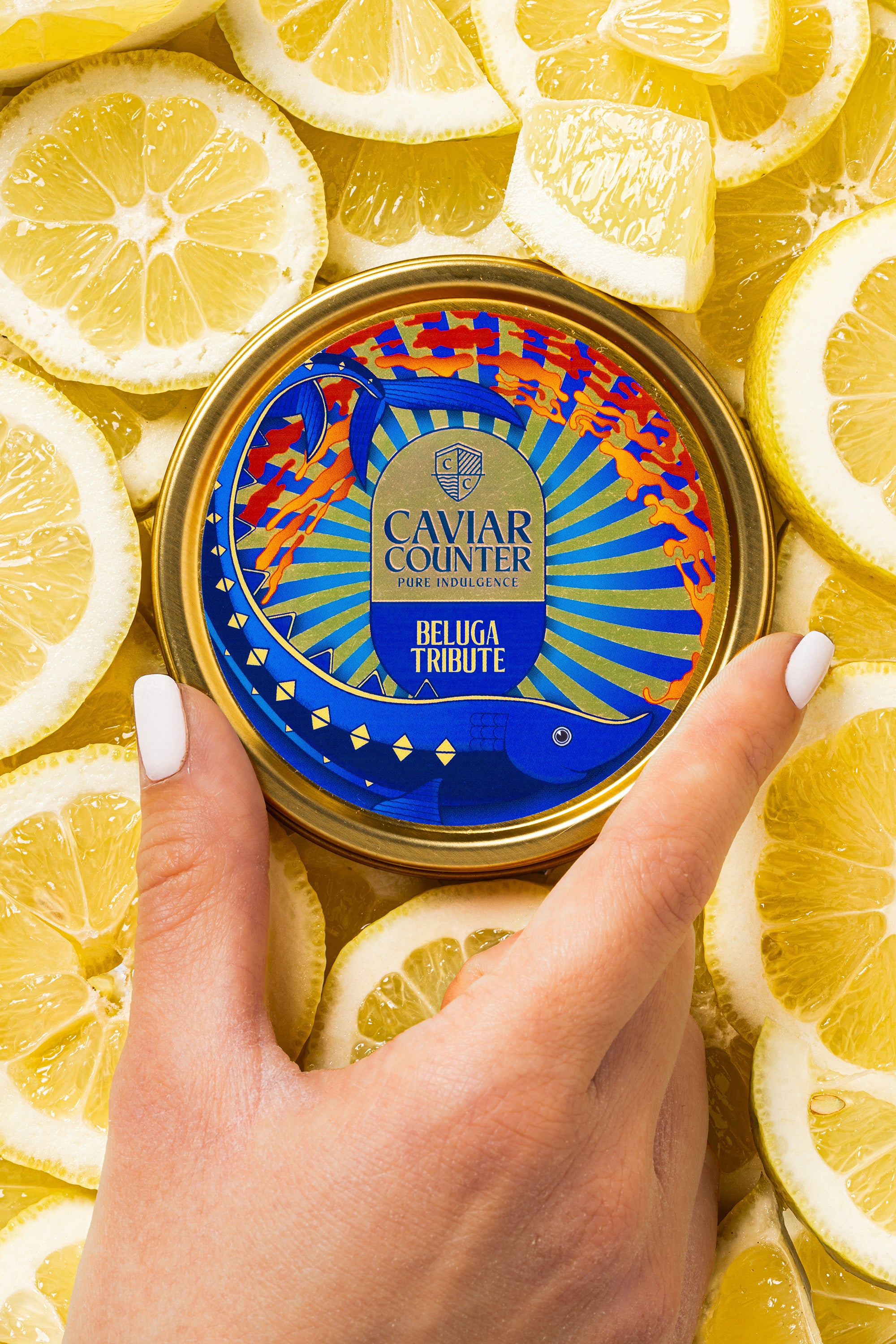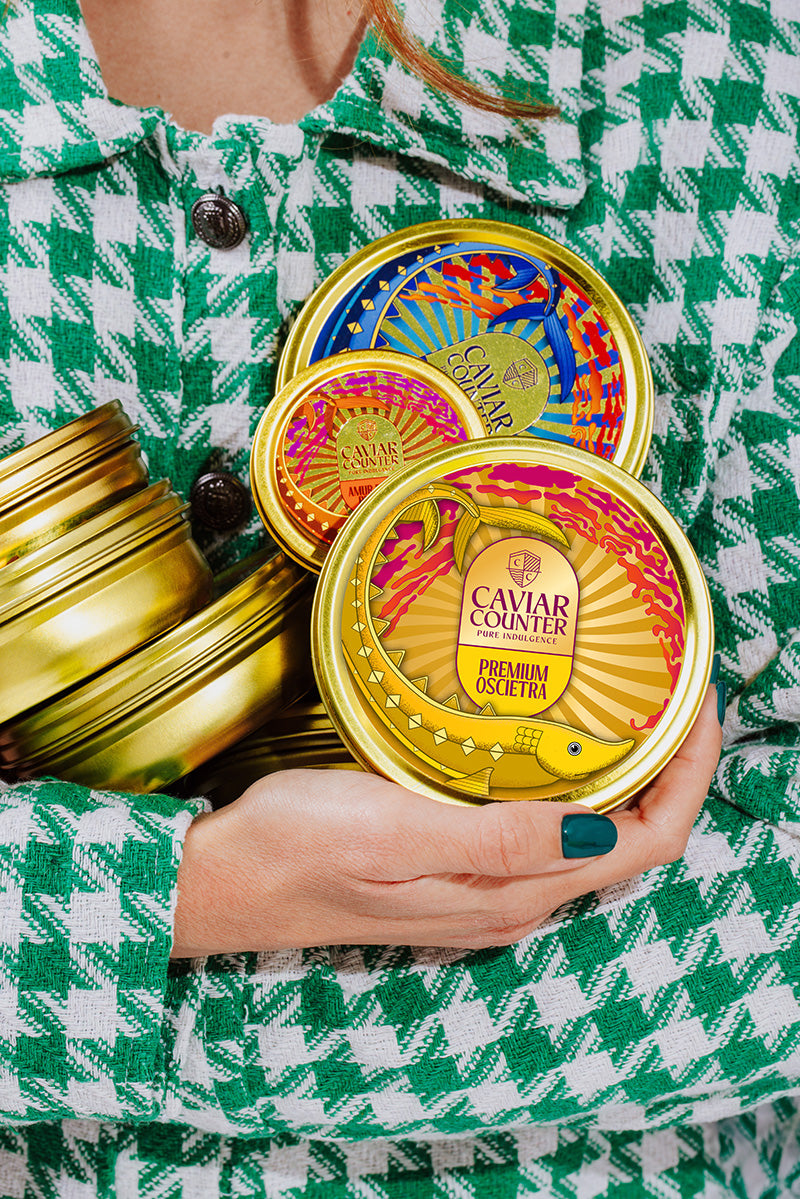Benefits
Vitamins in Caviar
Vitamin B12
Essential for energy production, red blood cell formation, and nervous system health. Caviar is one of the richest sources of vitamin B12.
Vitamin D
Supports bone health, immune function, and calcium absorption.
Vitamin A
Promotes healthy vision, skin, and immune function.
Vitamin E
Acts as a powerful antioxidant, protecting cells from damage and supporting skin health.
Vitamin B6
Important for brain development, metabolism, and neurotransmitter production.
Folate (Vitamin B9)
Crucial for DNA synthesis, cell growth, and red blood cell production.
Niacin (Vitamin B3)
Supports energy production, brain function, and healthy skin.
Riboflavin (Vitamin B2)
Helps convert food into energy and maintains healthy skin and eyes.
Pantothenic Acid (Vitamin B5)
Plays a role in energy metabolism and the synthesis of hormones and neurotransmitters.
Thiamine (Vitamin B1)
Essential for energy production and proper functioning of the nervous system.




Typical Calories in Caviar
The typical calorie count for 100 grams of caviar
is approximately 250 to 270 calories.
This can vary slightly depending on the type of caviar (e.g., beluga, oscietra) and the preparation method (e.g., salted or pasteurised). The majority of these calories come from protein and healthy fats, particularly omega-3 fatty acids. Caviar is a nutrient-dense food, offering high nutritional value despite its relatively low-calorie count.

